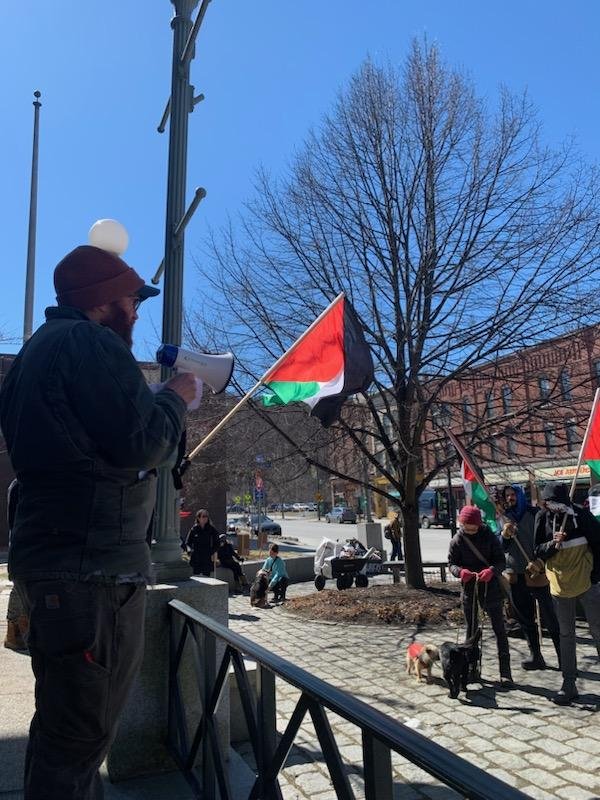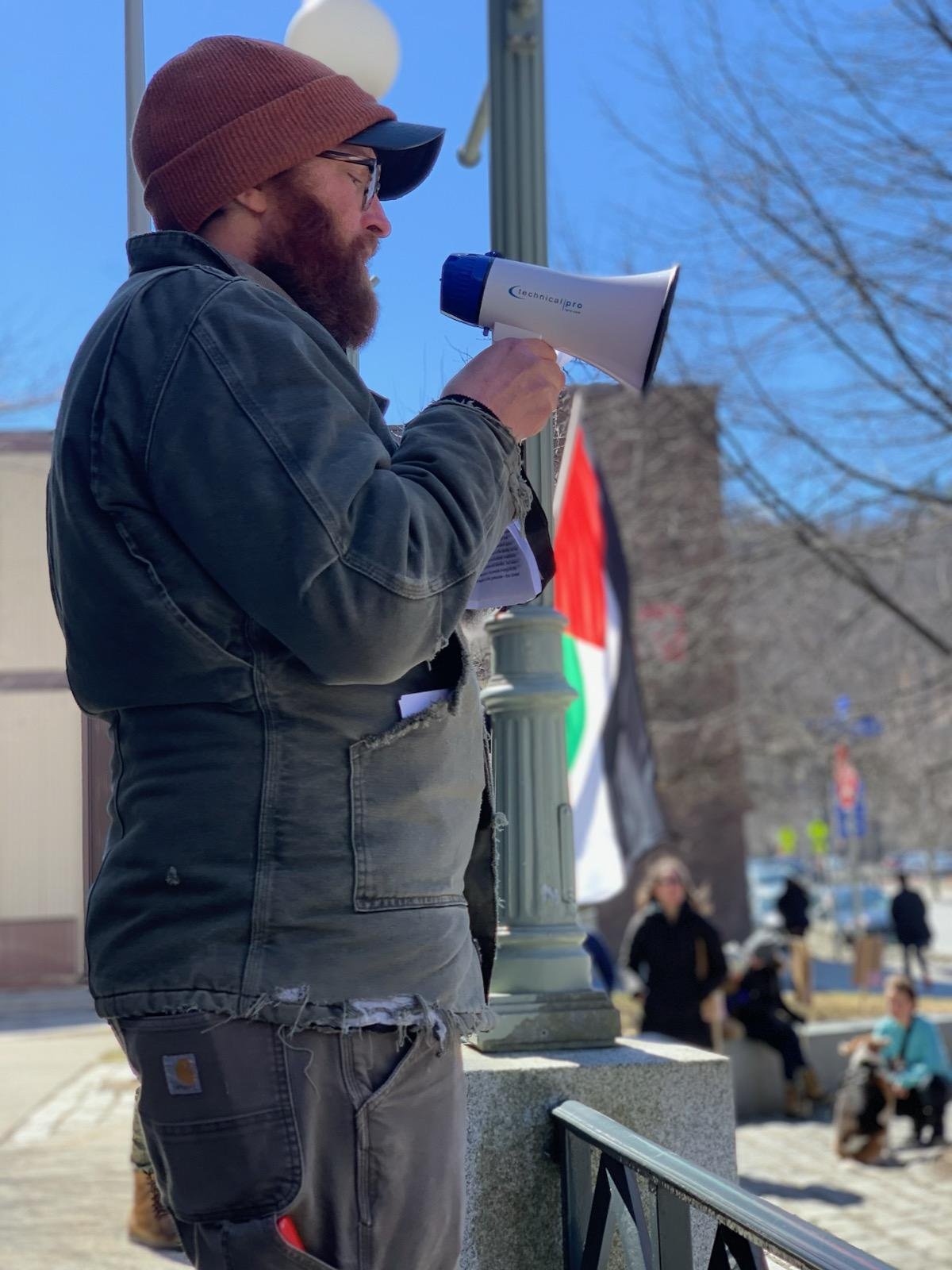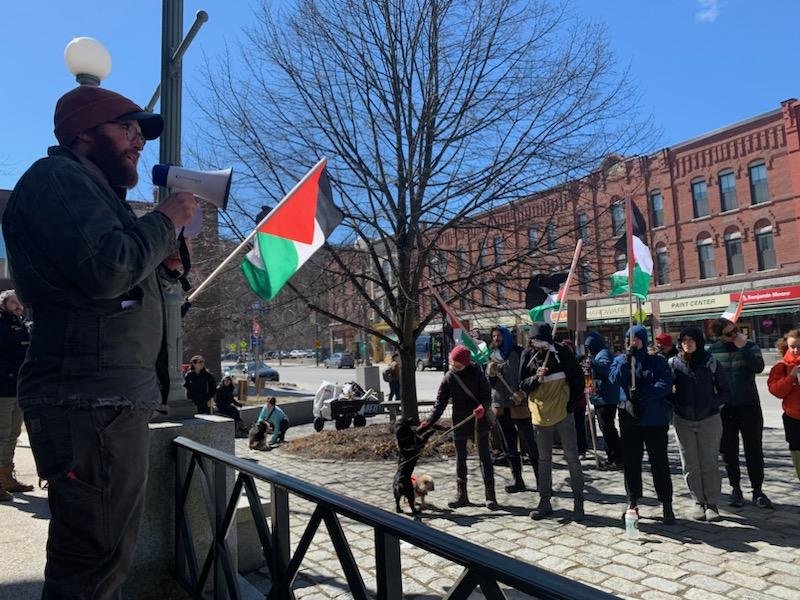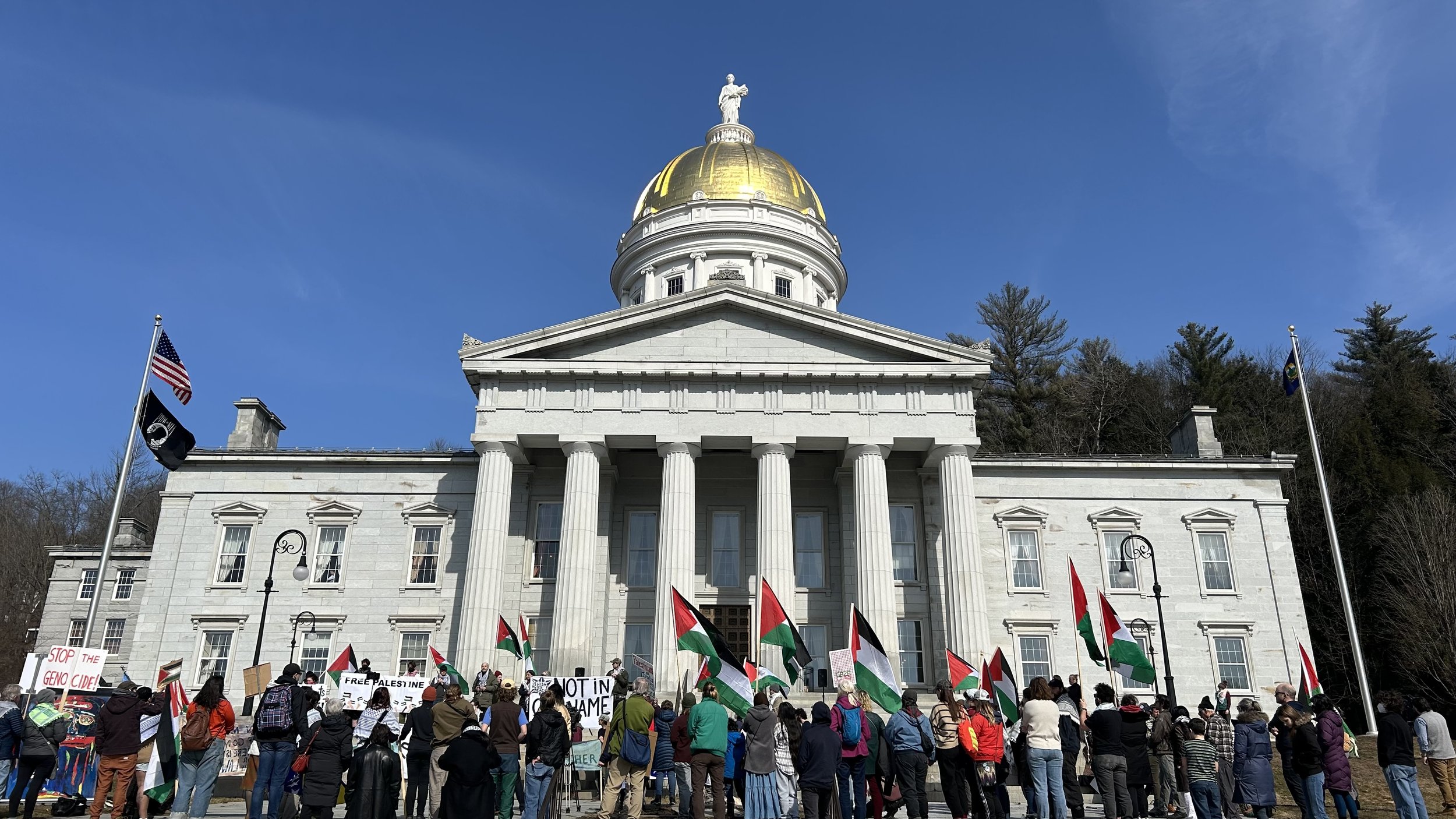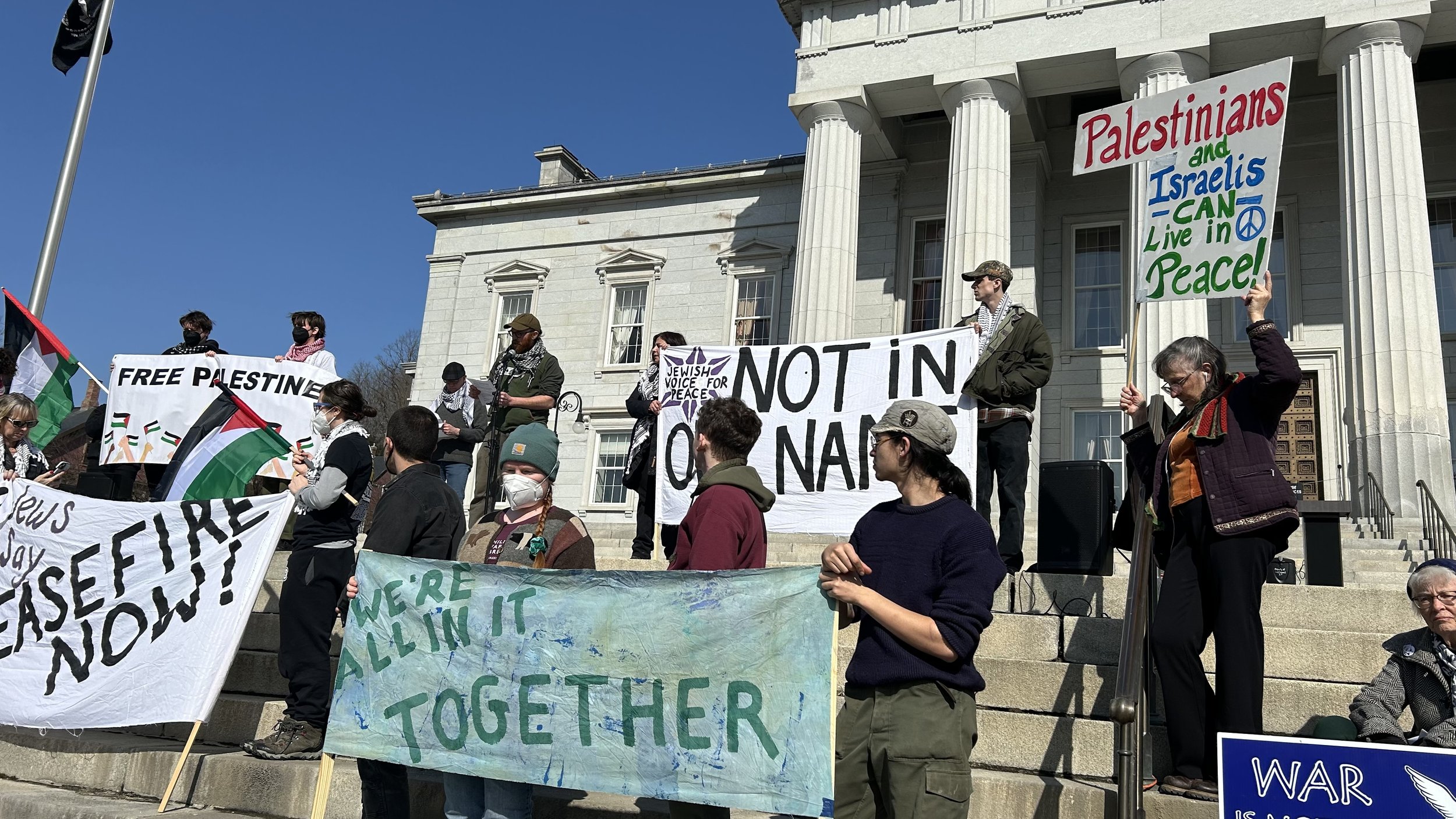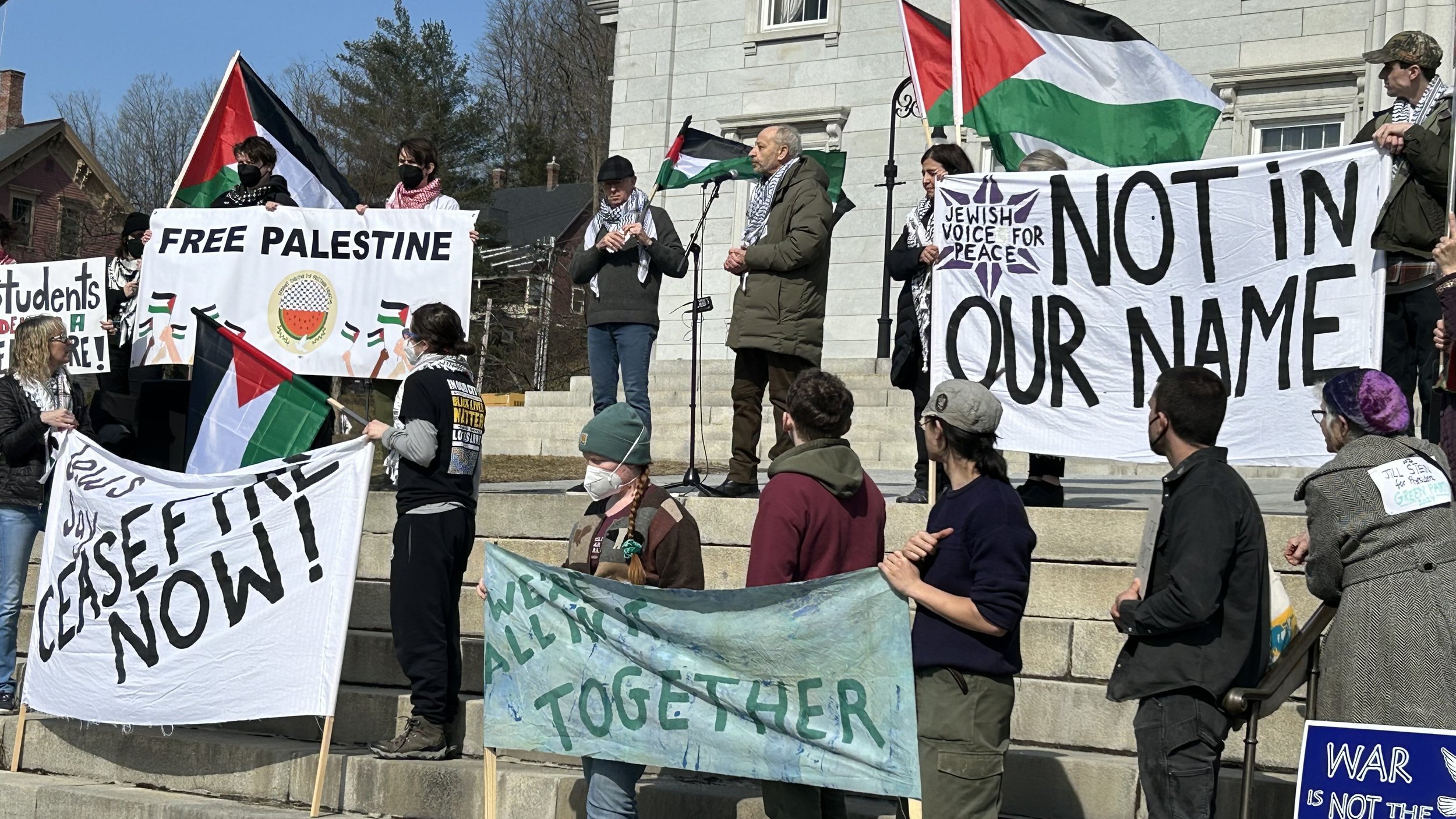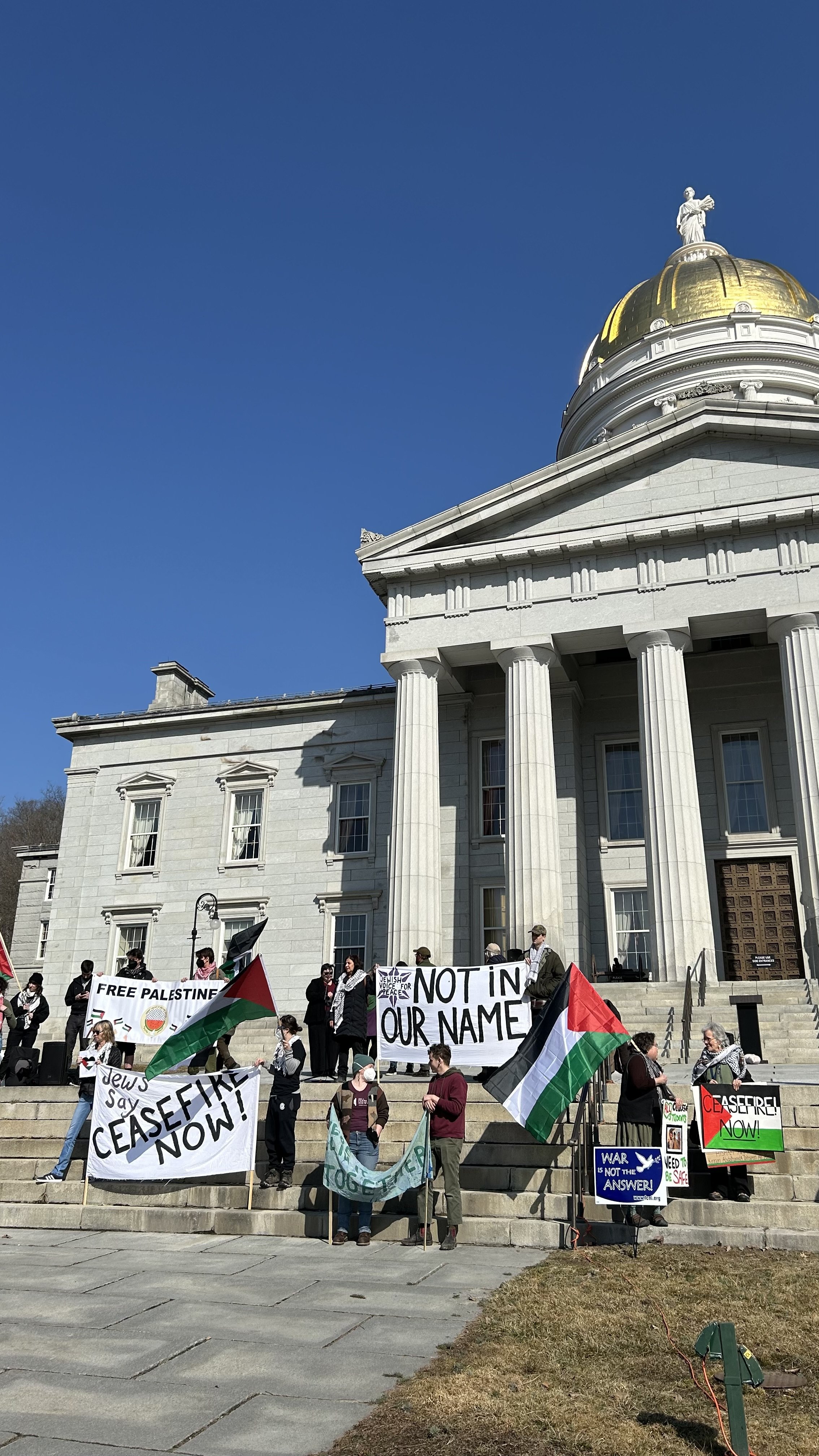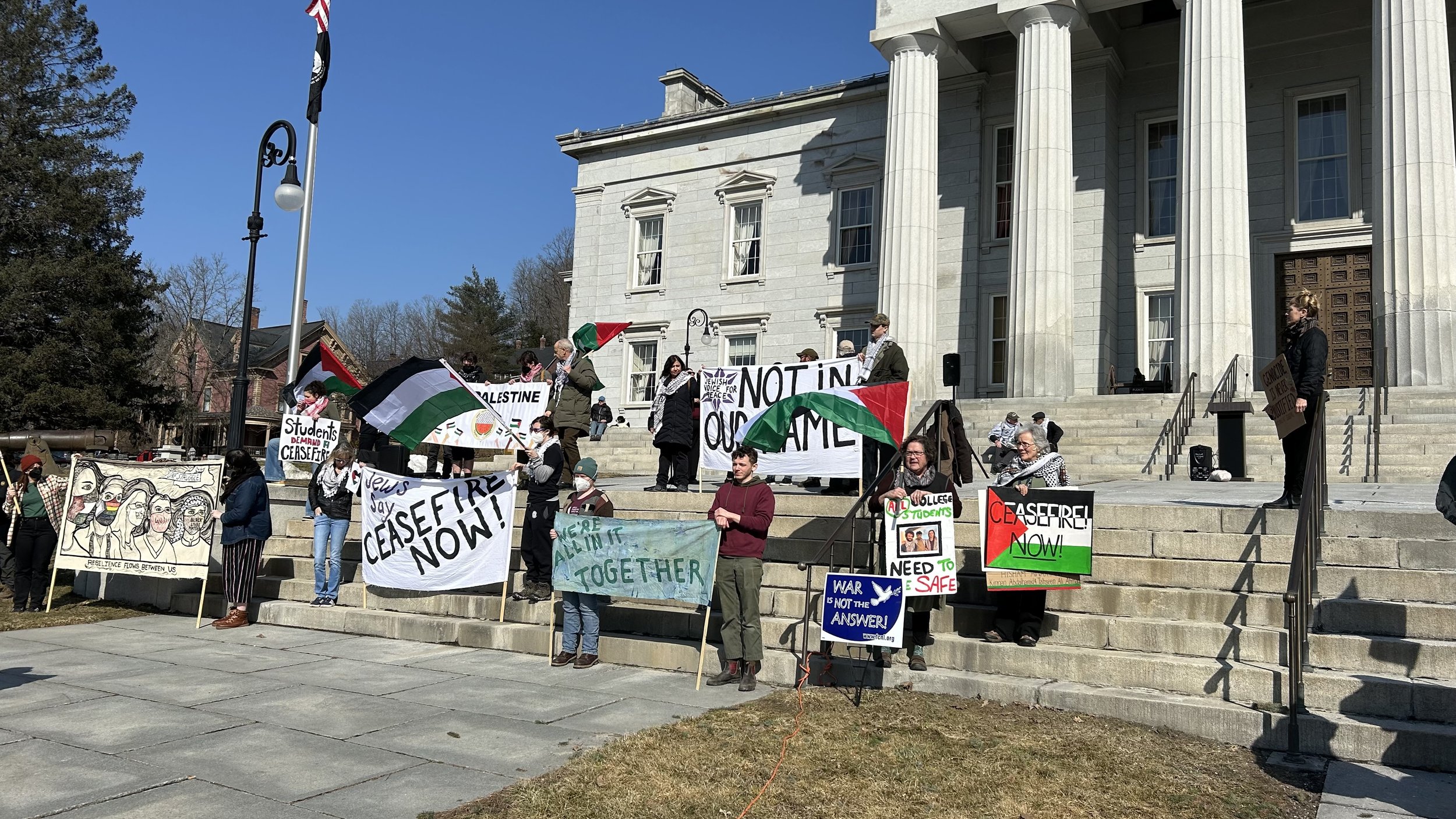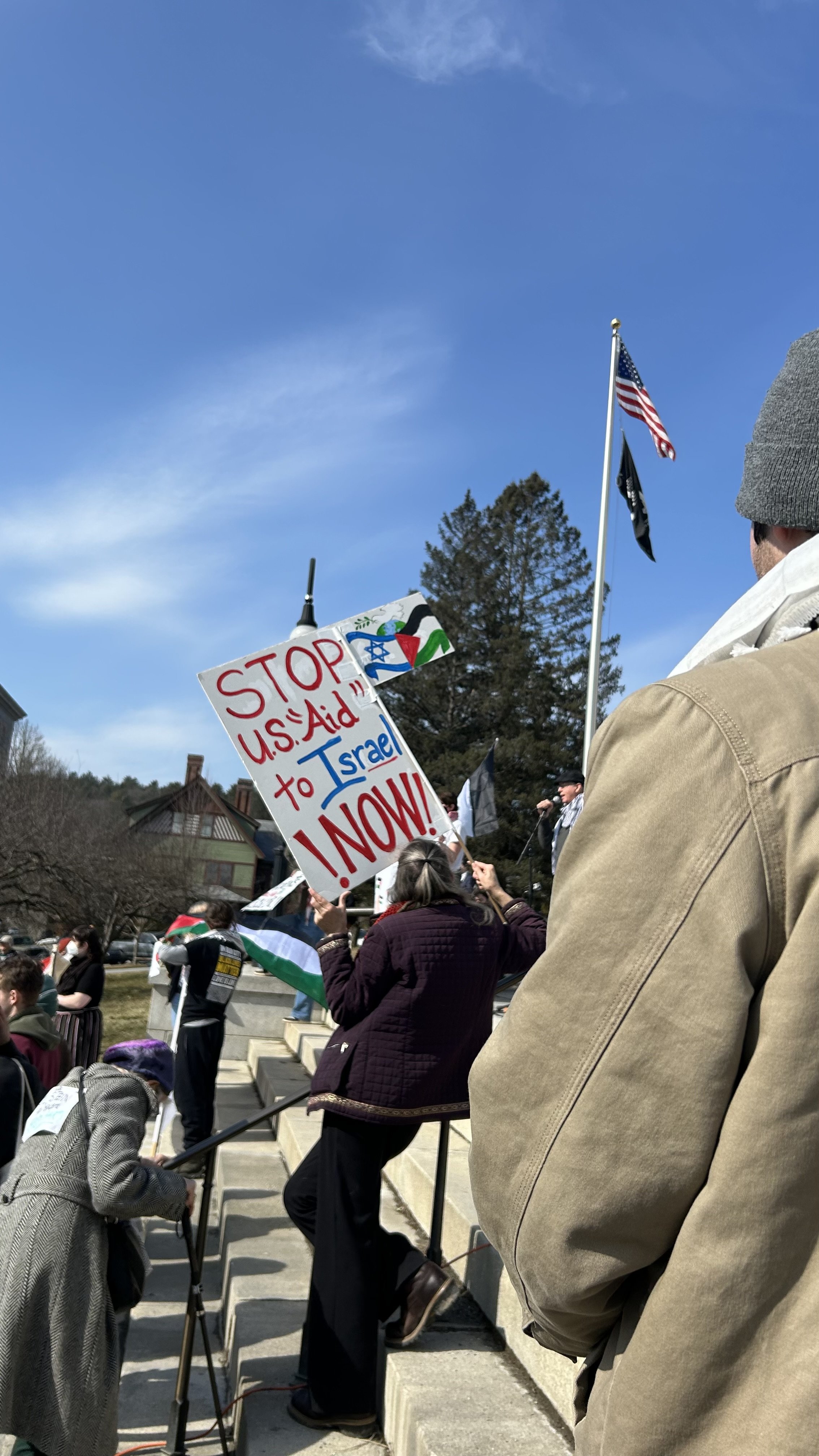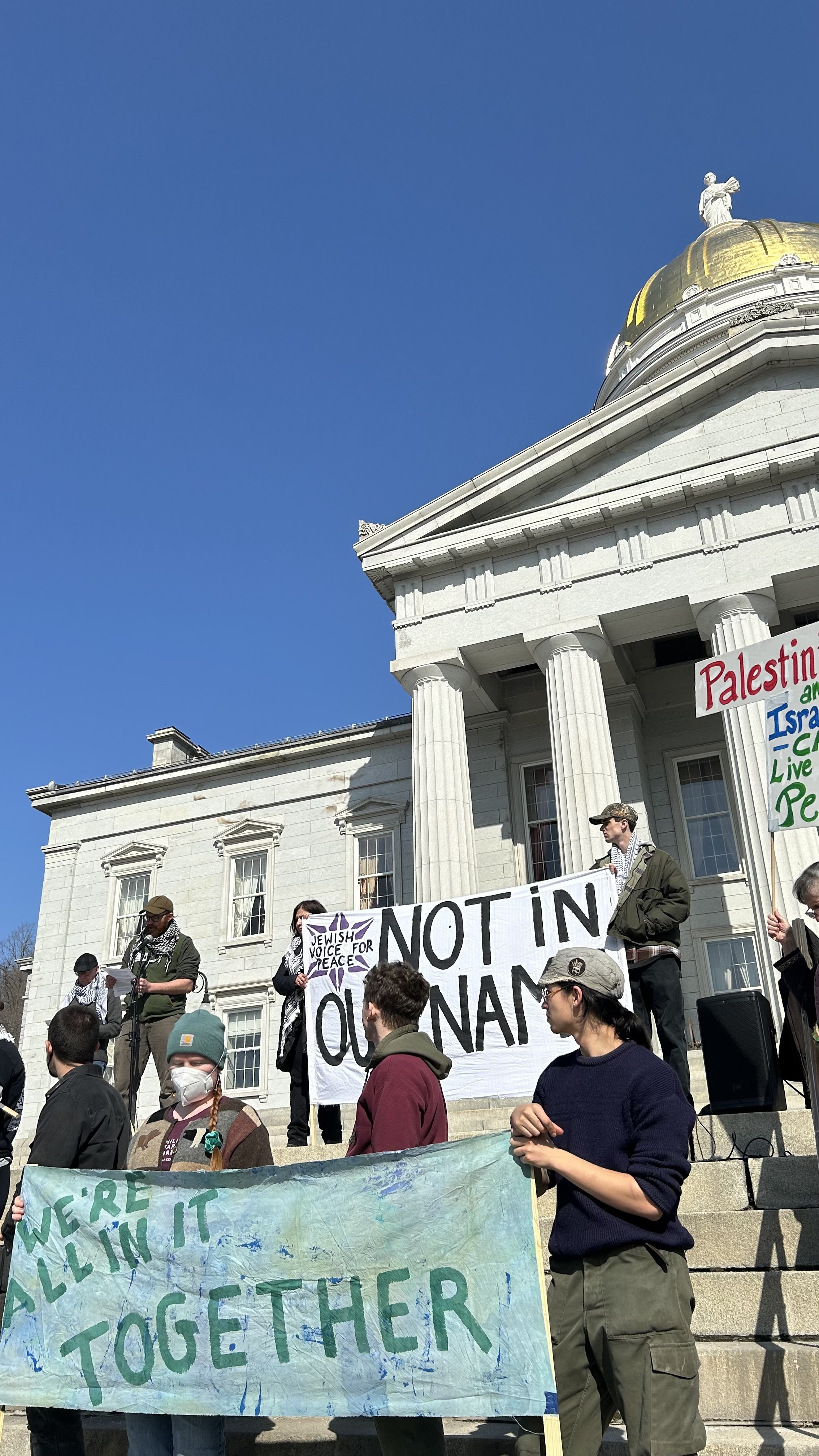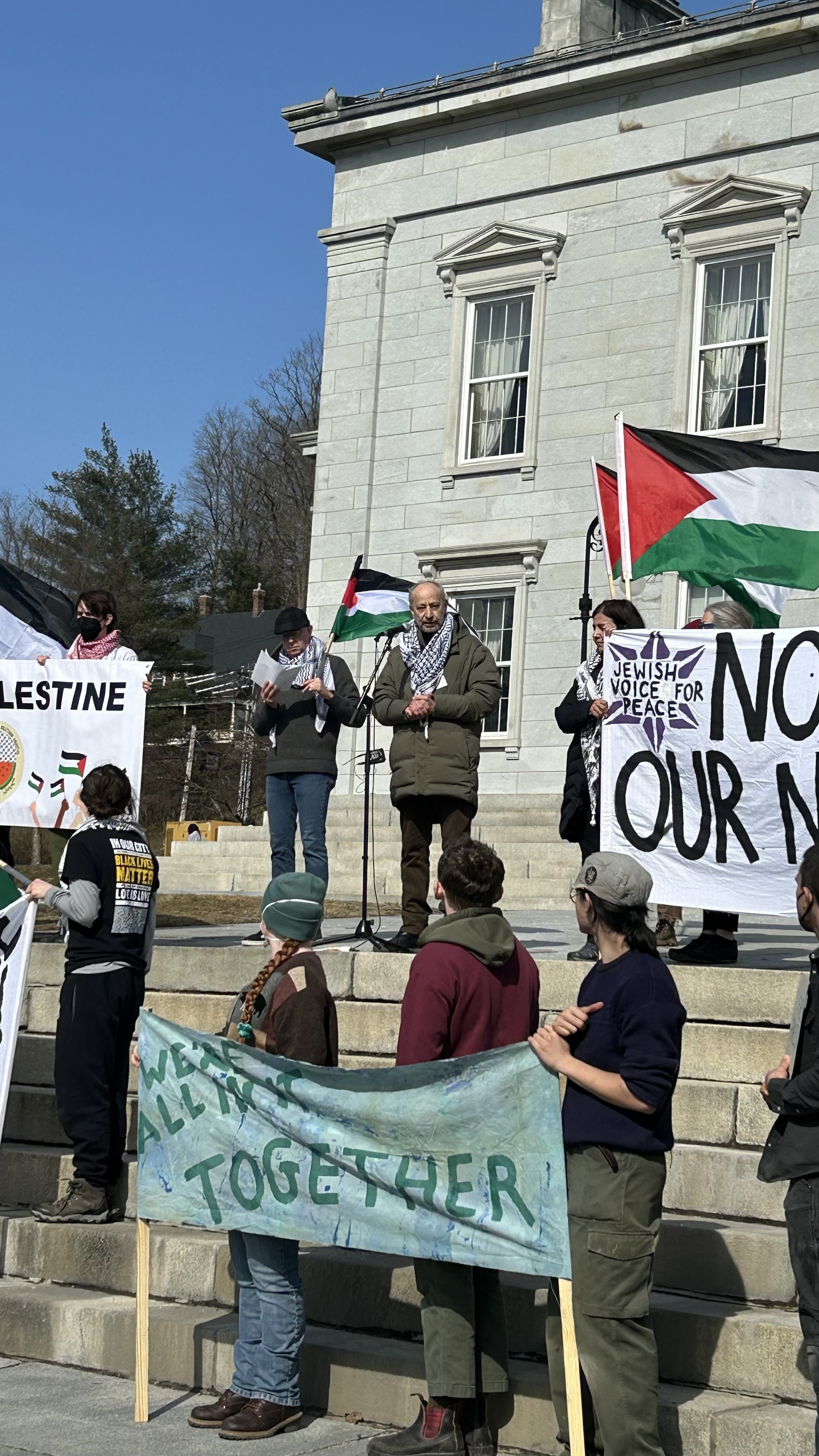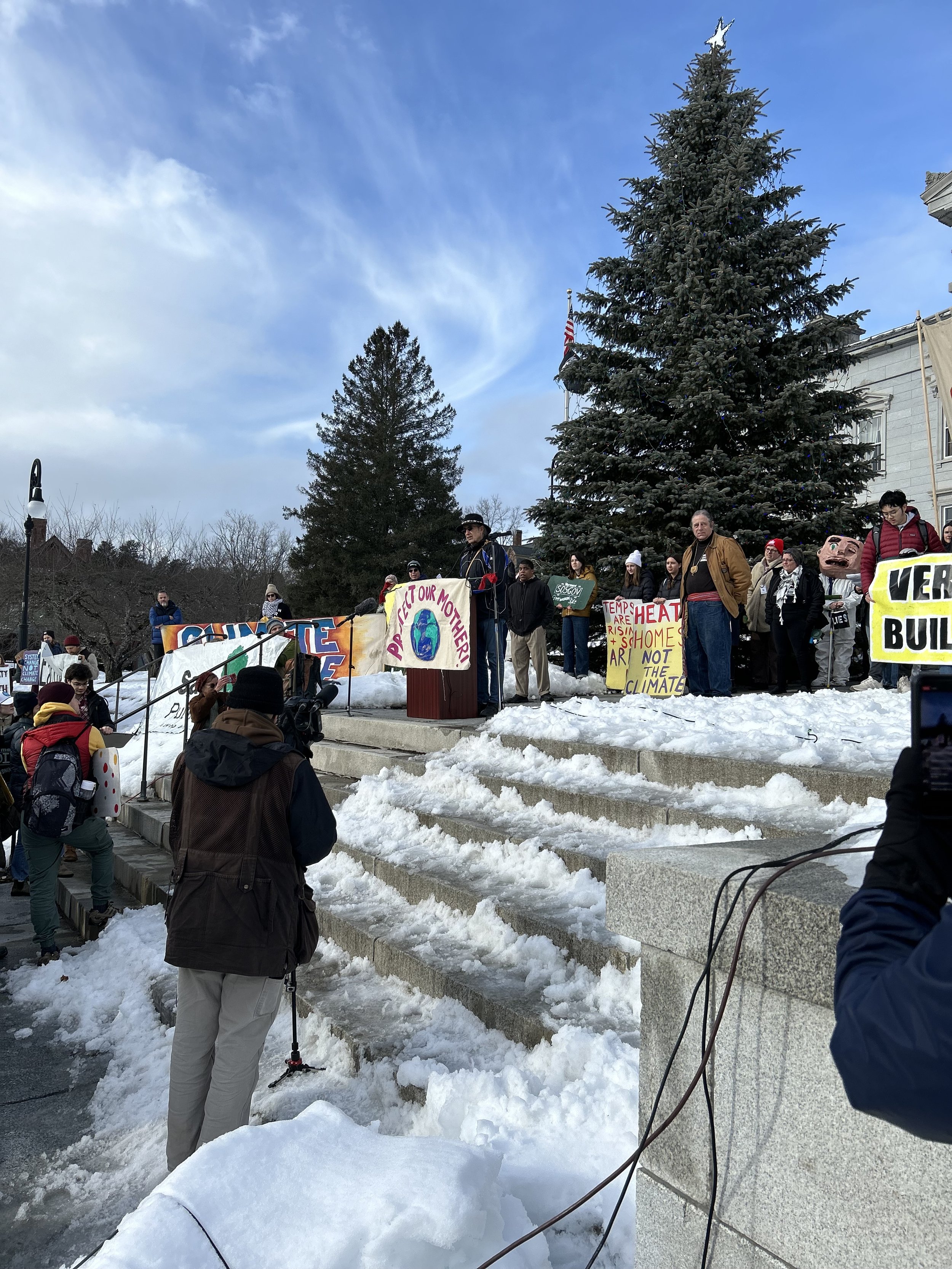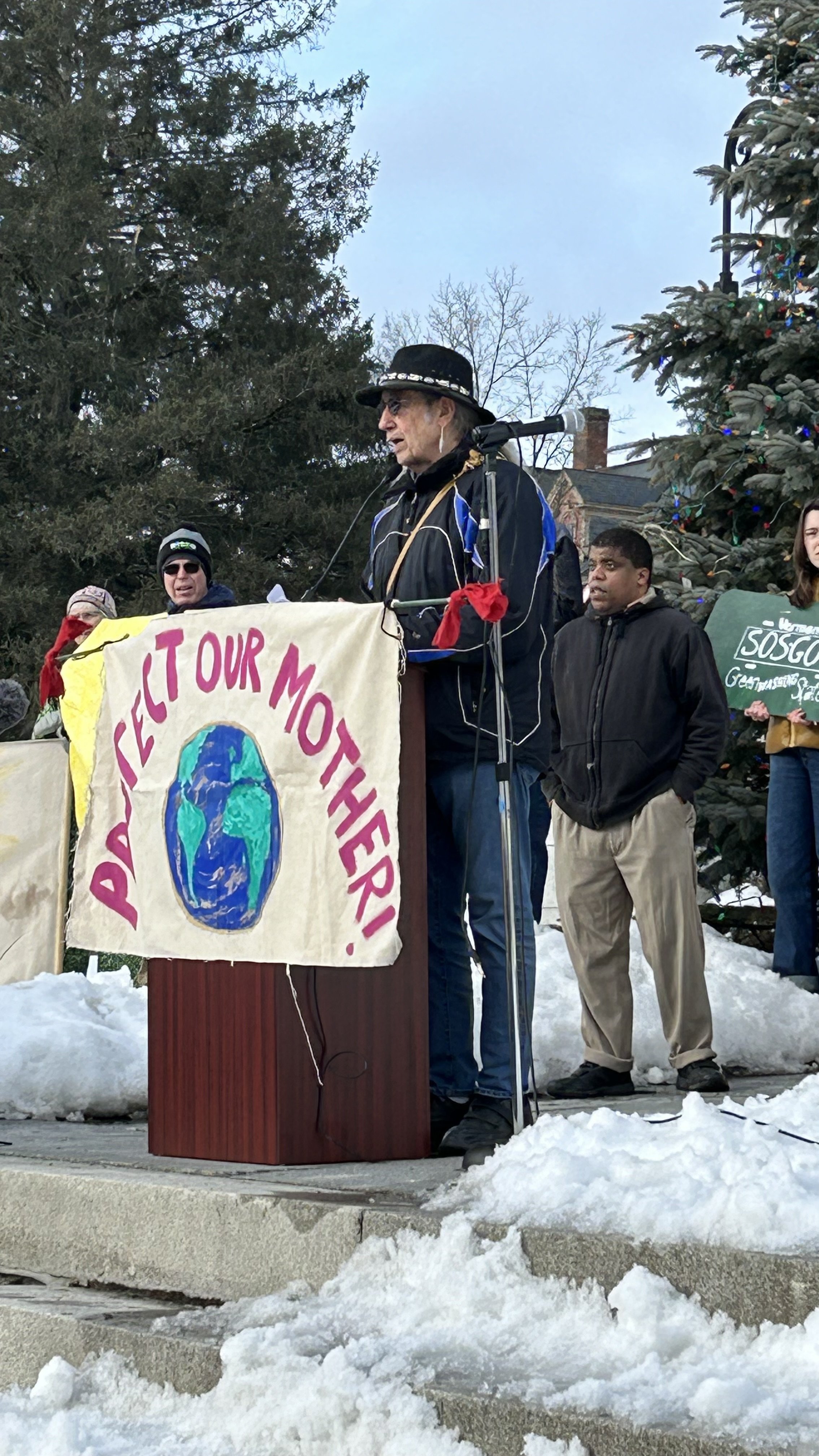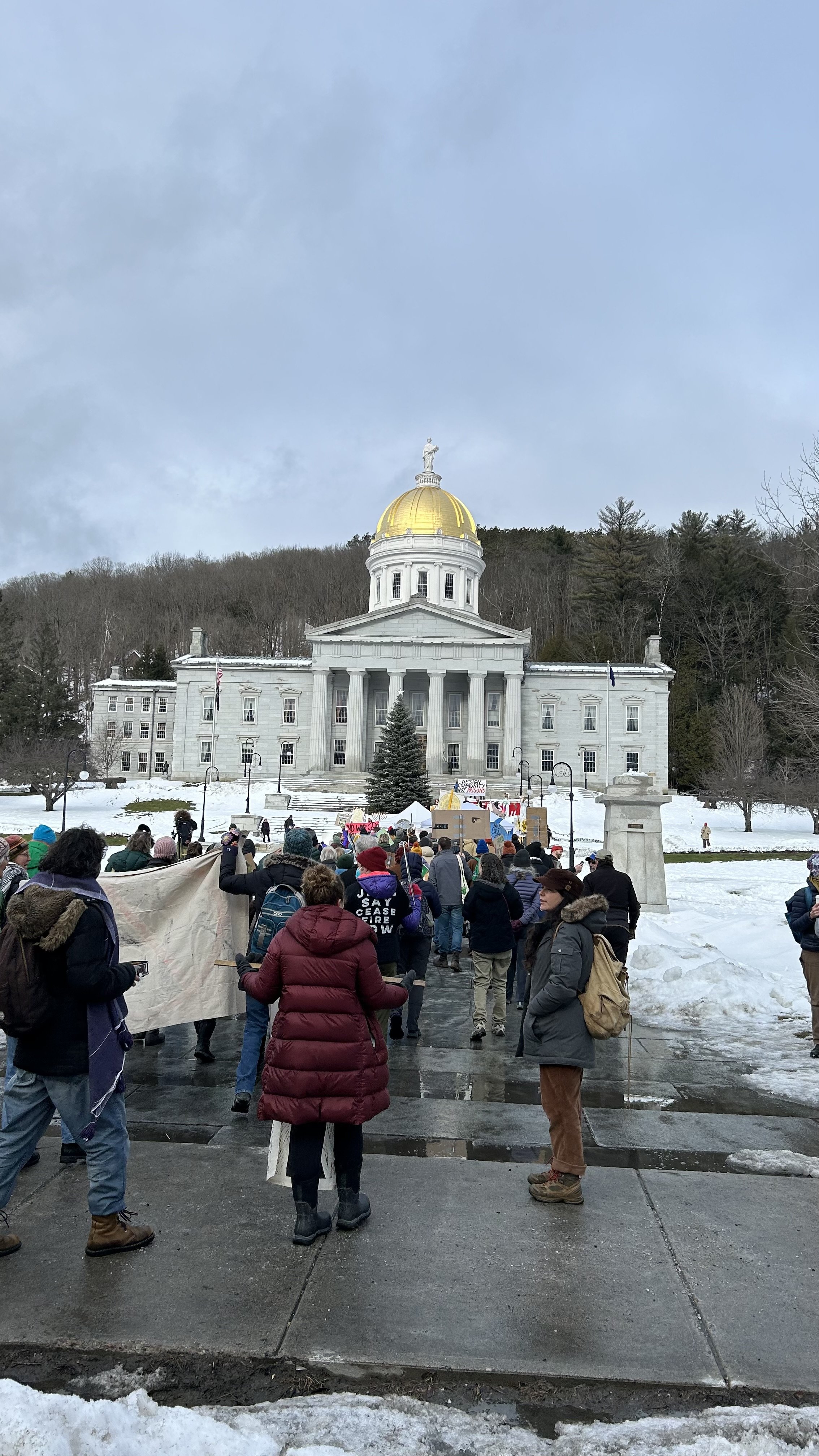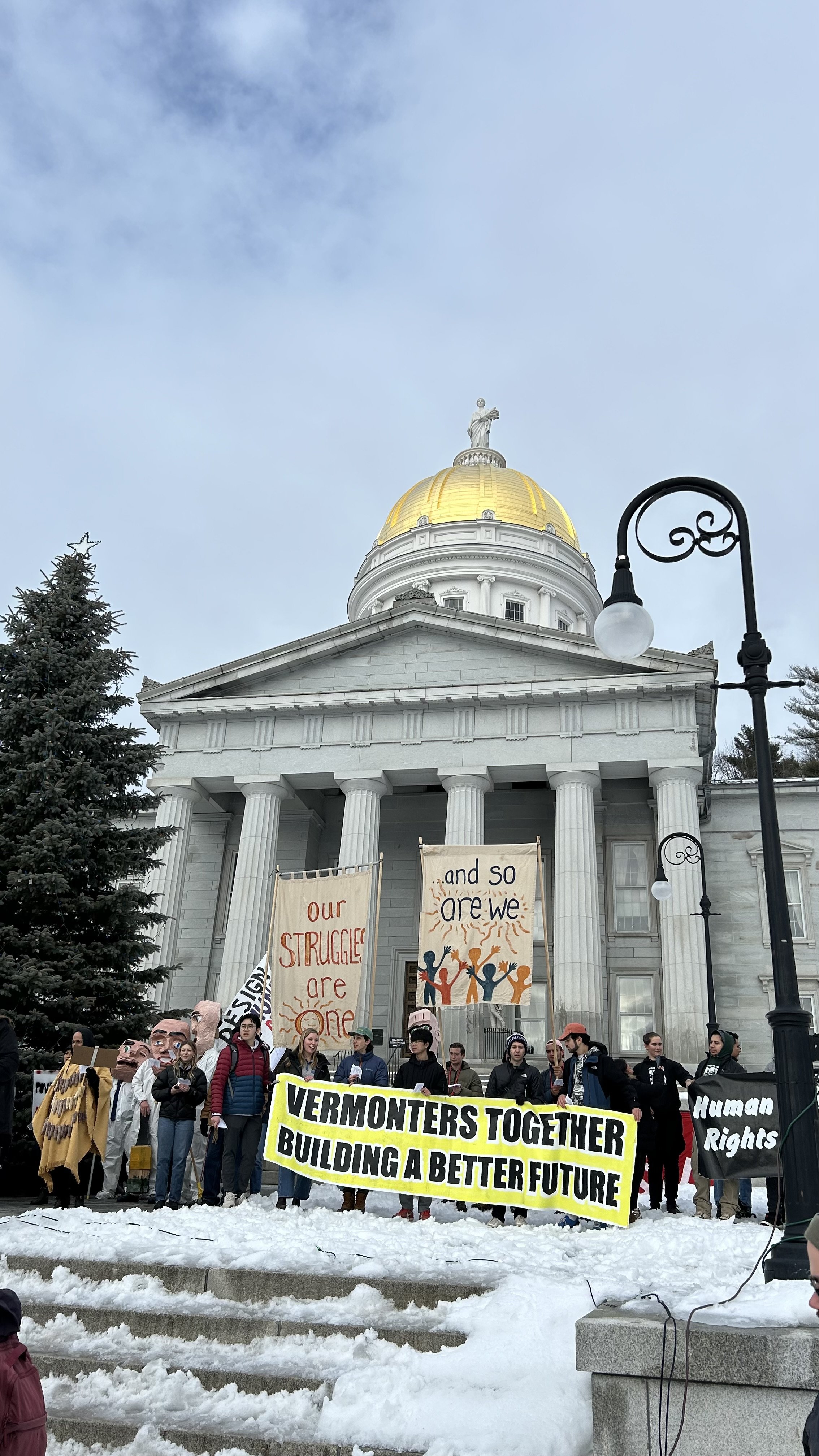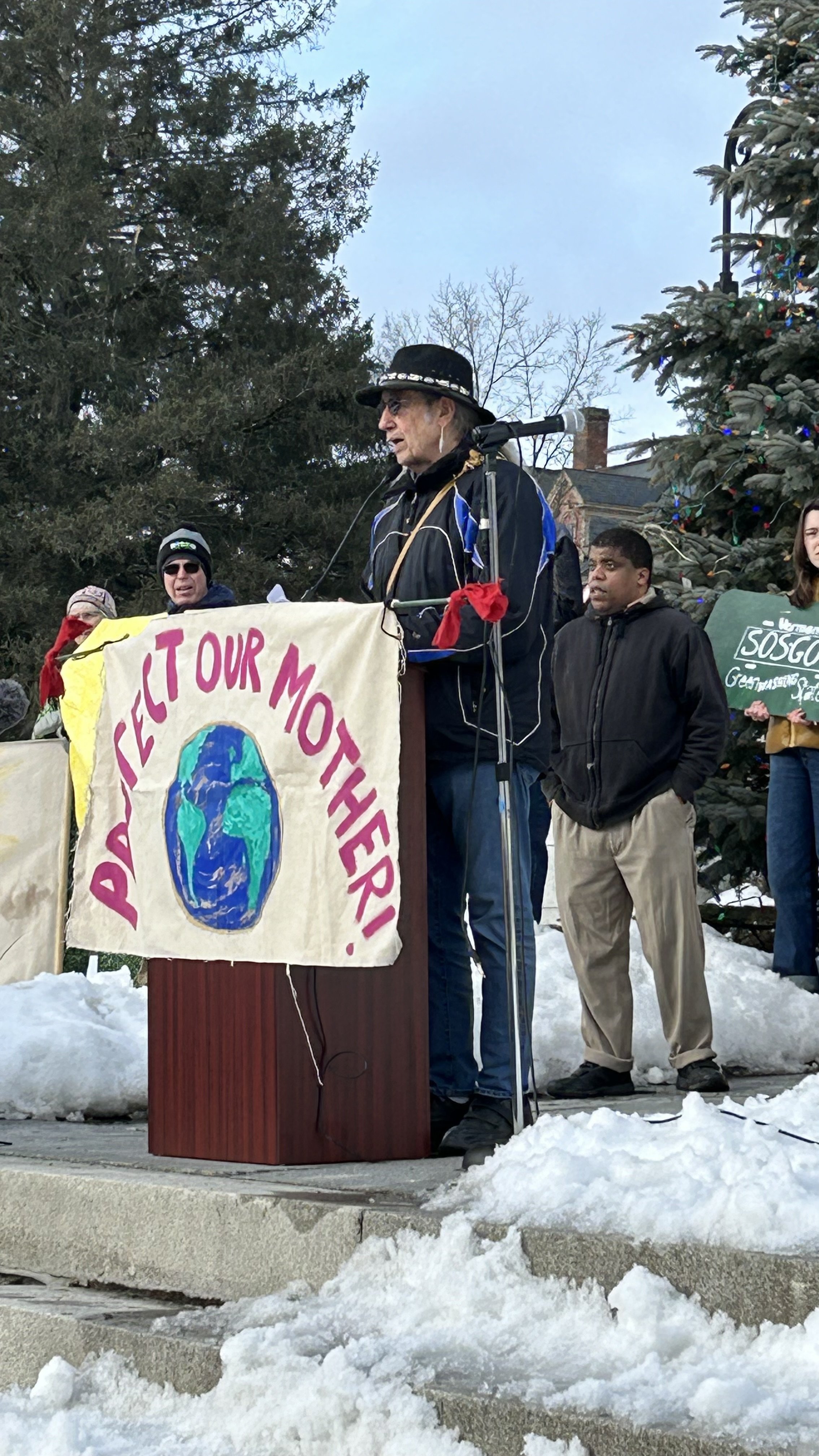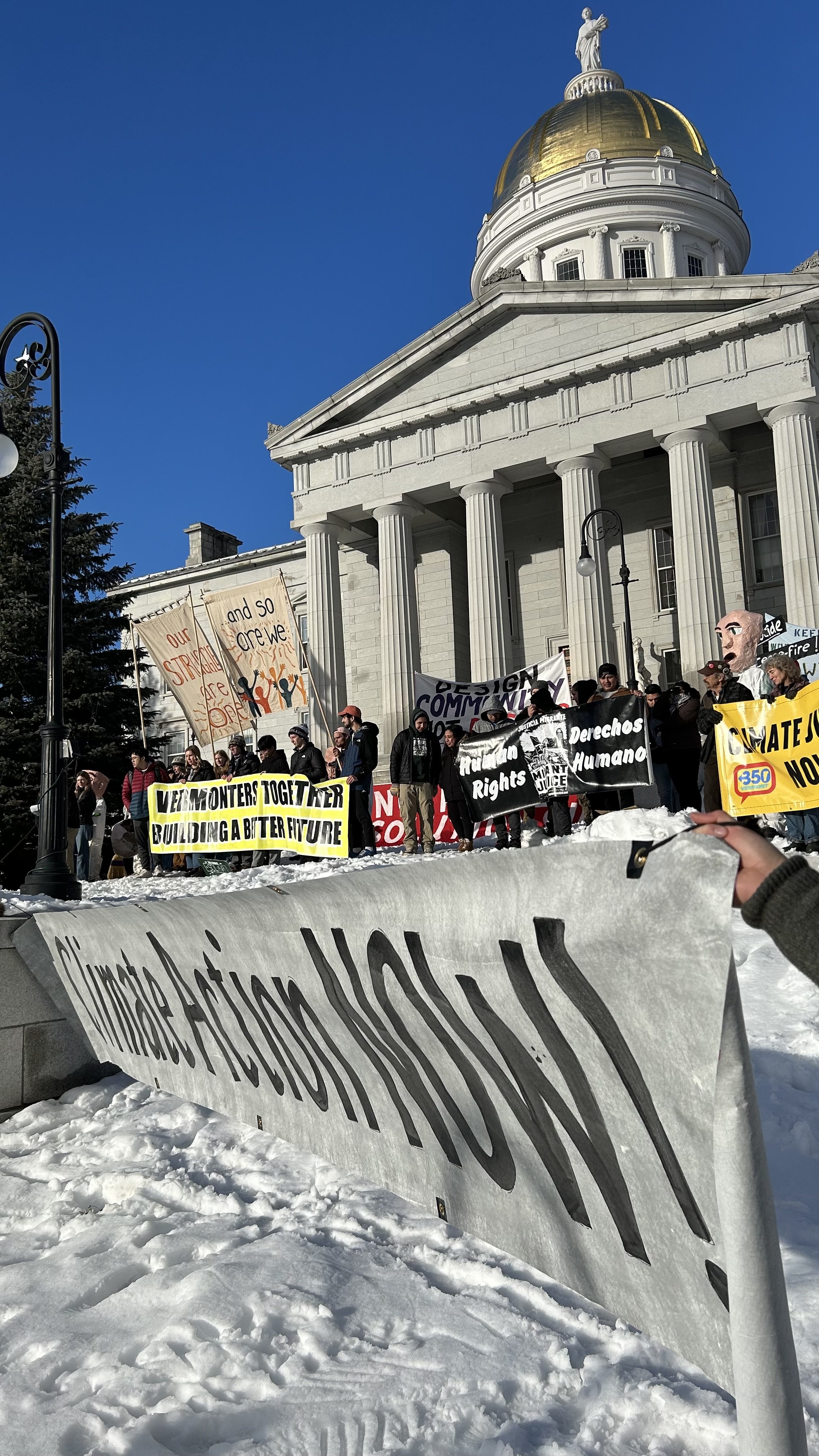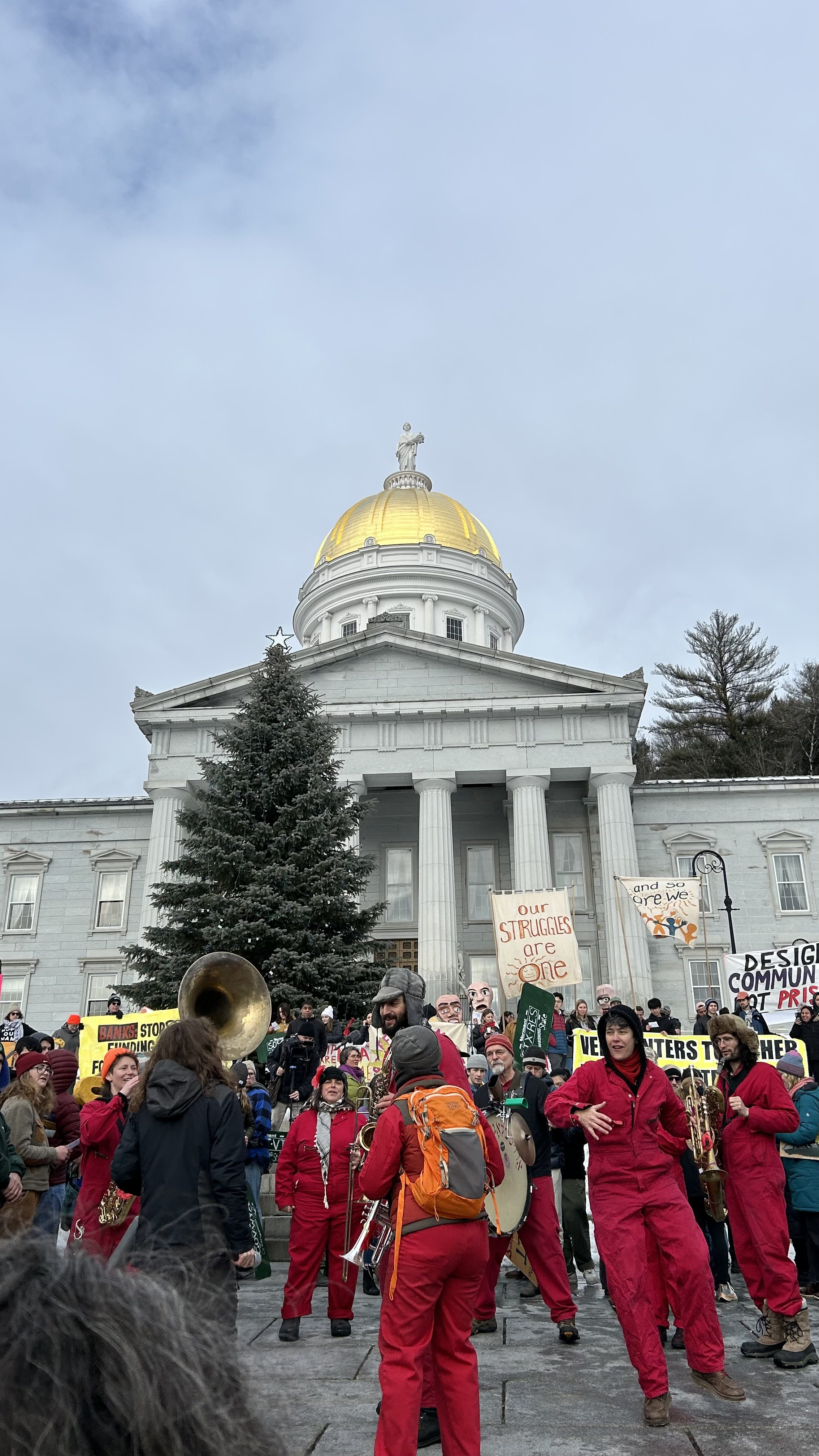¡Brigada! The 2024 Short Course on People’s Agroecology in Vermont
From October 3 to October 9, dozens of local farmers, farmworkers, organizers and activists gathered in Greensboro Bend, Vermont, for the 2024 Short Course in People’s Agroecology, with participants from Rural Vermont, the National Family Farm Coalition, the Farmworkers Association of Florida (FWAF), the National Farmers’ Union (NFU) of Canada, Union Paysanne in Quebec, Organización Boricuá from Puerto Rico, and the Institute for Agroecology of the University of Vermont. This short course was based on the agroecological work brigade methodology that has been led by organizations such as Boricuá and others across the world. Learning by doing and learning through solidarity were two major pedagogical dimensions of the course.
As the brigade showed up on the land of small farmers and agrarian leaders across the state, dialogue was formed, often in the form of opening and closing circles, where people shared their voices and developed their listening skills. Experienced practitioners shared on themes like building and sustaining cooperatives, racial justice in Vermont and the US, mutual aid networks, challenging heteropatriarchy in farming communities, building courage and solidarity against colonialism, apartheid and genocide, integrating affordable housing into agroecological farms, harm reduction and healing from trauma, closing nutrient cycles in the food system, agroforestry, poultry production, goat raising, vermiculture, field preparation, post-harvest management, small business management, beginning carpentry, and scaling agroecology at the community level.
From marching on the picket lines of Migrant Justice in its demands for Hannaford to provide Milk with Dignity, to joining Northeast Kingdom Organizing in a packed showing of the documentary Just Getting By on the housing crisis, the presence of the brigade was an important means of living into solidarity with the struggles for social justice in the state.
Participants learned about the housing and food crisis widely experienced by Vermont communities, struggles with land access for young farmers, and different frameworks for liberatory movements. They made art together, condemning over one year of ongoing genocide in Palestine being carried out with US weapons, intelligence and logistical support. Together, they rebuilt part of a sugar shack, planted hundreds of pounds of garlic, mucked out goat sheds, and harvested squash. They moved a lot of firewood, in true brigade formation, as the leaf colors changed in front of their eyes, and the Northeast Kingdom got the first fall frosts. Some participants even witnessed the northern lights!
With brigade visits to Wheelock Mountain Farm, Black Dirt Farm, Dawn Land Farm, Riverside Farm, Ezili’s Respite Farm and Sanctuary, Crystal Ledge Farm, Cedar Mountain Farm, and the Quechee Abenaki Gardens, there was both a tremendous generosity of time, wisdom and spirit on the part of farmers, as well as the beginning of a sense of movement capacity to bring labor to concrete situations, highlighting solidarity as a real factor in small farm survival in the hostile political economy of a corporate, colonial food system.
It truly does take a village.
Wheelock Mountain Farm played the crucial role of providing shelter, a kitchen, discussion space, library access, stoves and firewood, and a sense of home during the entire Short Course, as well as days before and after.
Dawn Land Farm, Cedar Mountain Farm, Crystal Ledge Farm, the Quechee Abenaki Gardens, Ubuntu Freedom, Black Dirt Farm and Riverside Farm offered educational content and teaching time.
Riverside Farm, FUSDA, Bear Roots Farm, and Sweet Rowan Farm generously donated healthy and delicious food. Russell Maroon Shoatz III provided cooking expertise throughout the week. Sage Mountain Botanical Sanctuary supported our transportation needs for the week. The Institute for Agroecology (IFA) provided logistical, programmatic and pedagogical support throughout. The member organizations of Via Campesina North America and Via Campesina Caribbean Region made a major effort to be present, even as a hurricane was bearing down on the US South and Caribbean geographies. And of course, many people who were not present gave their time to taking care of children, homes, families and farms so that those who were there could be present. Learning and understanding how many actors need to be able to come together, give the best of themselves, and feel good about a process is a huge part of building change from the grassroots.
The participants in the 2024 Short Course in People’s Agroecology learned with and from one another while deepening their relationships and connection through shared work, political analysis, and a vision for a better world. Together, they wrote a declaration following the time they spent together.
DECLARATION OF THE 2024 SHORT COURSE IN PEOPLE’S AGROECOLOGY:
This past week the People’s Agroecology School, a project of Rural Vermont, held the 2024 Short Course in People’s Agroecology - a place where people from Vermont, Florida, California, Quebec, Ontario, Bkwejenong, Nicaragua, Costa Rica, Puerto Rico and beyond congregated to discuss Agroecology and its political implications.
We visited and worked side by side with farmers from Barre, Groton, Greensboro Bend, Stannard, Bethel, Hartland, and Queechee, where we were able to hold spaces of hard work, play, reflection, and exchange of ideas.
Working together shoulder to shoulder, we realized that we all share similar struggles.
No matter where we come from, we are affected by the 800 military bases that the US has around the world, with their price tag and their impact on global peace, global resistance, and global warming. US-initiated wars since 2001 have caused the death of over four million human beings, and there have been 250 US military operations since 1992, causing untold suffering. The US military alone emits more CO2 than any other single entity on the planet.
The US commitment to war, domination of land and water resources, and profit margins for corporations, is suffocating our planet. Since January 2023, there have been 153 declarations of major disaster in the United States alone. Climate-driven disasters are on the rise at an astonishing rate across the world. The determination of the United States to prevent alternatives to the capitalist model takes place as the planet’s self-regulating mechanisms are being overwhelmed. Tax dollars kill!
Agroecology is so much more than farming; it’s about building community. Agroecology is a science, a set of productive practices, and a social movement to apply ecological knowledge from indigenous and peasant traditions to food and farming systems, and is the basis for food sovereignty. We are all part of something much bigger than ourselves. This is why we cannot turn away from the fact that our brothers and sisters in Palestine need our support. As Rural Vermont clearly articulated in its Letter to the Editor to the Vermont weekly Seven Days on October 9, asking local organizations to show support for Palestine, we need to open our hearts and have honest conversations around this issue. The Israeli occupation must end, and US support for Israeli apartheid and genocide are unconscionable.
Agroecology connects us with community, in equality and solidarity, as well as with our surroundings and the land. When we take care of the living soil sponge, of our Earth Mother and our kind, together we can have bountiful crops, absorb atmospheric carbon and rainfall, and work towards decolonization of our minds and practices. The mindset of domination, elimination, and othering can be countered by a belief in ourselves, our diversity, and the fertility of our world. We need each other, just as we need the microbial communities in our bodies and in our soil. We need the vast variety of life and landscape, fields and friends, pollinators and people, to remember who we are and where we belong.
Vermont has experienced three hundred-year floods in 13 months, Florida has been hit by two major hurricanes in 13 days, and Puerto Rico has been impacted year after year with increasingly severe tropical storms. Droughts are longer, floods are more severe. All of our territories are being affected, and this is just the beginning of the terrible changes to our climate that colonialism and capitalism are unleashing. We choose agroecology as a means to keep being human and take care of our families and communities as our climates change.
Housing is a human right. Our food is our freedom. We are our environment. When we struggle for our own rights to access land, nourish each other without toxic chemicals, ban cancer-causing pesticides, practice natural and traditional medicine, speak from the heart, take care of our neighbors no matter where they were born or what languages they speak, demand that police end their reign of terror against black and brown communities, organize for the release of political prisoners, and put forward a platform for a just transition from the extractive, fossil fuel economy to a regenerative, loving and restorative model, we grow in humanity, health, and responsibility.
Members of Rural Vermont and the People’s Agroecology School of Vermont will be facilitating a workshop at the October 19 Conference for the Struggle for Land and Liberation, hosted by the Vermont Coalition for Palestinian Liberation, from 10am to 7pm at the Old North End Community Center in Burlington. The workshop will be focused on land struggles, food sovereignty, movement building, and solidarity from farmers’ perspectives. Other workshops will be led by groups in Vermont working in prison abolition, migrant justice, LGBTQIA+ liberation, and more. Everyone should leave this conference with at least three concrete actions they can take to materially impact the situation in Palestine. Each group leading workshops will make clear how the struggle for Palestinian liberation is relevant to the people who organize with them - nothing is relevant if you do not take action.
The 2024 Short Course in People’s Agroecology reminded us of a phrase of Rachel Carson– the sense of wonder. After these days of collective labor, deep conversation, and community caretaking, we stand in awe of each other, the forests, and of ourselves, as we carry so much history in our hearts and responsibility in our hands. We can support each other to build a new way forward, with food sovereignty, agroecology, land to tend, and love in our eyes. Being together on this Earth is enough reason to celebrate, cooperate, commemorate, and fight like hell for an end to war, occupation, abuse and exploitation. May we sing a song of resistance together.



























